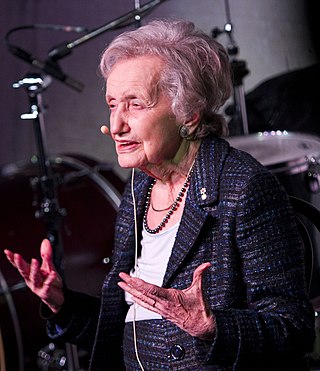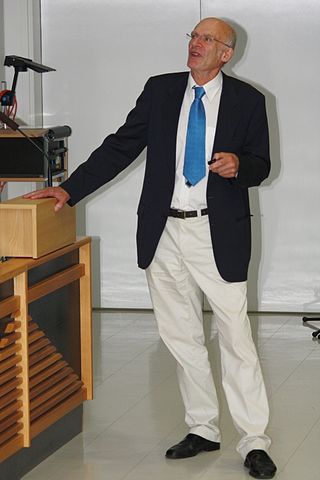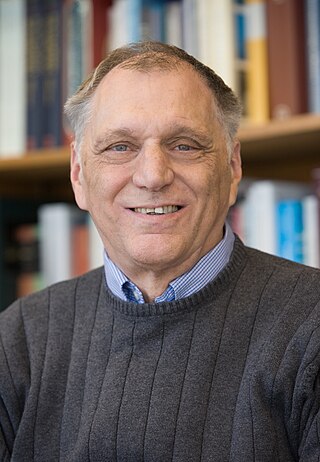
Cognitive science is the interdisciplinary, scientific study of the mind and its processes with input from linguistics, psychology, neuroscience, philosophy, computer science/artificial intelligence, and anthropology. It examines the nature, the tasks, and the functions of cognition. Cognitive scientists study intelligence and behavior, with a focus on how nervous systems represent, process, and transform information. Mental faculties of concern to cognitive scientists include language, perception, memory, attention, reasoning, and emotion; to understand these faculties, cognitive scientists borrow from fields such as linguistics, psychology, artificial intelligence, philosophy, neuroscience, and anthropology. The typical analysis of cognitive science spans many levels of organization, from learning and decision to logic and planning; from neural circuitry to modular brain organization. One of the fundamental concepts of cognitive science is that "thinking can best be understood in terms of representational structures in the mind and computational procedures that operate on those structures."

Neuroscience is the scientific study of the nervous system, its functions and disorders. It is a multidisciplinary science that combines physiology, anatomy, molecular biology, developmental biology, cytology, psychology, physics, computer science, chemistry, medicine, statistics, and mathematical modeling to understand the fundamental and emergent properties of neurons, glia and neural circuits. The understanding of the biological basis of learning, memory, behavior, perception, and consciousness has been described by Eric Kandel as the "epic challenge" of the biological sciences.

Cognitive neuroscience is the scientific field that is concerned with the study of the biological processes and aspects that underlie cognition, with a specific focus on the neural connections in the brain which are involved in mental processes. It addresses the questions of how cognitive activities are affected or controlled by neural circuits in the brain. Cognitive neuroscience is a branch of both neuroscience and psychology, overlapping with disciplines such as behavioral neuroscience, cognitive psychology, physiological psychology and affective neuroscience. Cognitive neuroscience relies upon theories in cognitive science coupled with evidence from neurobiology, and computational modeling.

Brenda Milner is a British-Canadian neuropsychologist who has contributed extensively to the research literature on various topics in the field of clinical neuropsychology. Milner is a professor in the Department of Neurology and Neurosurgery at McGill University and a professor of Psychology at the Montreal Neurological Institute. As of 2020, she holds more than 25 honorary degrees and she continued to work in her nineties. Her current work covers many aspects of neuropsychology including her lifelong interest in the involvement of the temporal lobes in episodic memory. She is sometimes referred to as the founder of neuropsychology and has been essential in its development. She received the Balzan Prize for Cognitive Neuroscience in 2009, and the Kavli Prize in Neuroscience, together with John O'Keefe, and Marcus E. Raichle, in 2014. She turned 100 in July 2018 and at the time was still overseeing the work of researchers.

James Lloyd "Jay" McClelland, FBA is the Lucie Stern Professor at Stanford University, where he was formerly the chair of the Psychology Department. He is best known for his work on statistical learning and Parallel Distributed Processing, applying connectionist models to explain cognitive phenomena such as spoken word recognition and visual word recognition. McClelland is to a large extent responsible for the large increase in scientific interest in connectionism in the 1980s.
Neurophilosophy or philosophy of neuroscience is the interdisciplinary study of neuroscience and philosophy that explores the relevance of neuroscientific studies to the arguments traditionally categorized as philosophy of mind. The philosophy of neuroscience attempts to clarify neuroscientific methods and results using the conceptual rigor and methods of philosophy of science.

Michael I. Posner is an American psychologist who is a researcher in the field of attention, and the editor of numerous cognitive and neuroscience compilations. He is emeritus professor of psychology at the University of Oregon, and an adjunct professor at the Weill Medical College in New York. A Review of General Psychology survey, published in 2002, ranked Posner as the 56th most cited psychologist of the 20th century.

Risto Kalervo Näätänen is a psychological scientist, pioneer in the field of cognitive neuroscience, and known worldwide as one of the discoverers of the electrophysiological mismatch negativity. He has been a much-cited social scientist and one of the few individuals appointed permanent Academy Professor of the Academy of Finland. He retired in 2007, retaining a title of Academy Professor emeritus of the Academy of Finland. Since 2007, he has been a professor at the University of Tartu.
Kathleen E. Taylor is a popular science author and a research scientist in the Department of Physiology, Anatomy and Genetics at the University of Oxford. In July 2012 she was appointed as a Science Fellow of the Institute for Food, Brain and Behaviour.

Dame Uta Frith is a German-British developmental psychologist at the Institute of Cognitive Neuroscience at University College London. She has pioneered much of the current research into autism and dyslexia. She has written several books on these subjects, arguing for autism to be seen as a mental condition rather than as one caused by parenting. Her Autism: Explaining the Enigma introduces the cognitive neuroscience of autism. She is credited with creating the Sally–Anne test along with fellow scientists Alan Leslie and Simon Baron-Cohen. She also pioneered the work on child dyslexia. Among students she has mentored are Tony Attwood, Maggie Snowling, Simon Baron-Cohen and Francesca Happé.

Michael T. Ullman is an American neuroscientist whose main field of research is the relationship between language, memory and the brain. His Declarative/Procedural model of language has greatly affected the field of psycholinguistics and cognitive neuroscience.

The Princeton University Department of Psychology, located in Peretsman-Scully Hall, is an academic department of Princeton University in Princeton, New Jersey. For over a century, the department has been one of the most notable psychology departments in the country. It has been home to psychologists who have made well-known scientific discoveries in the fields of psychology and neuroscience.

Larry Ryan Squire is a professor of psychiatry, neurosciences, and psychology at the University of California, San Diego, and a Senior Research Career Scientist at the Veterans Affairs Medical Center, San Diego. He is a leading investigator of the neurological bases of memory, which he studies using animal models and human patients with memory impairment.

Edvard Ingjald Moser is a Norwegian professor of psychology and neuroscience at the Kavli Institute for Systems Neuroscience, at the Norwegian University of Science and Technology (NTNU) in Trondheim. In 2005, he and May-Britt Moser discovered grid cells in the brain's medial entorhinal cortex. Grid cells are specialized neurons that provide the brain with a coordinate system and a metric for space. In 2018, he discovered a neural network that expresses your sense of time in experiences and memories located in the brain's lateral entorhinal cortex. He shared the Nobel Prize in Physiology or Medicine in 2014 with long-term collaborator and then-wife May-Britt Moser, and previous mentor John O'Keefe for their work identifying the brain's positioning system. The two main components of the brain's GPS are; grid cells and place cells, a specialized type of neuron that respond to specific locations in space. Together with May-Britt Moser he established the Moser research environment, which they lead.
Philip David Zelazo is a developmental psychologist and neuroscientist. His research has helped shape the field of developmental cognitive neuroscience regarding the development of executive function.
Ingrid Suzanne Johnsrude is a Canadian neuroscientist, a professor of psychology at University of Western Ontario, and was the holder of the Canada Research Chair in Cognitive Neuroscience. Her research involves brain imaging, the connections between brain structure and language ability, and the diagnosis of degenerative brain diseases in the elderly.
Isabel Gauthier is a cognitive neuroscientist currently holding the position of David K. Wilson Professor of Psychology and head of the Object Perception Lab at Vanderbilt University’s Department of Psychology. In 2000, with the support of the James S. McDonnell Foundation, she founded the Perceptual Expertise Network (PEN), which now comprises over ten labs based across North America. In 2006 PEN became part of the NSF-funded Temporal Dynamics of Learning Center (TDLC).

Matthew Dylan Lieberman is a Professor and Social Cognitive Neuroscience Lab Director at UCLA Department of Psychology, Psychiatry and Biobehavioral Sciences.

Sarah-Jayne Blakemore is Professor of Psychology and Cognitive Neuroscience at the University of Cambridge and co-director of the Wellcome Trust PhD Programme in Neuroscience at University College London














